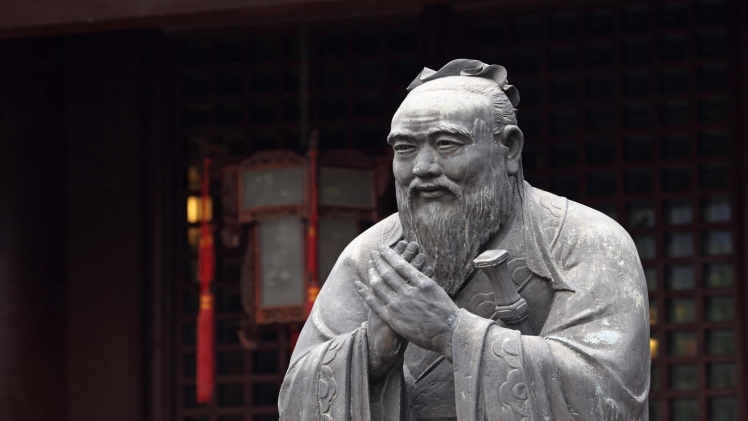Confucianism played an inevitable role in Chinese governance, politics, and social life. The Virtual Ethics of Confucius is still believed to be relevant in modern China. Neo-Confucianism is a burning example of that. If we closely notice the Chinese policies and social behavior we can easily find the influence of Confucius on Chinese politics.
Confucius, the great philosopher, shaped the bureaucracy of China through his enlightened way and belief. He taught the Chinese leaders how to govern with ethical thoughtfulness and execute their duties with responsibility.
In this article, we will try to find out the relationship between Confucianism and Politics in China in vital points.
Confucius and His Ethical Theories
The virtue ethics ideology of Confucius consists of six virtues called yi, xi, wen, zhi, ren, and li. These components have different meanings to emphasize the scope of improvement for an individual to perform their duties to society.
In his Ethical Theory, Confucius highlighted three important aspects of life.
- Social and Political Institutions
- Ancestral sacrificing ceremony
- Daily behavioral etiquette
Influence of Confucius on Chinese Politics
Confucianism left a remarkable imprint on Chinese politics through his teaching and ideological theories. His ethical virtues not only taught the Chinese people social and behavioral etiquette but also shaped the nation showing the bright path to the political leaders.
His theory made the leader move in the path of morality, stability, and willingness to convey their duties to society in an ethical manner.
Political Meritocracy
Meritocracy means the selection process only on merits and talent. In ancient China, only the higher class people had the right to be part of the government. Confucius opposed this political system and the Chinese government implemented a rule to appoint the government official through Civil Service examination.
In a political meritocracy, the government invests power and economy to give the opportunity to eligible, meritorious, and capable students irrespective of any socio-economic status.
Uplifting Filial Piety
Devotion to family or Filial Piety is a significant part of Confucianism. It depicts respect, physical care, service, love, and obedience. Confucius gave importance to Filial Piety in his books to guide children to be responsible to their families.
Confucianism tremendously ignited to uplift Filial Piety in Chinese society and culture. It also influenced their political lives.
Traditional Confucianism in China
Master Kong ( Confucius), the founder of traditional Confucianism intended to resuscitate the Zhou dynasty in China. He emphasized the rituals and ethical virtues in his ideology to make the society build with moral values and responsibility.
Traditional Confucianism encourages people to be loyal to the government, respect their parents, and make a stable one’s place in society.
New Confucianism In China
In the 20th Century, some intellectuals of the Republic of China urged some changes in Confucianism to make it more scientific and contextual with Western philosophy for the new generation. This movement gave birth to New Confucianism. Later, it developed in the post-Mao era to build modern China.
New Confucianism was influenced by Neo-Confucianism but differently made its way to a new movement.
Closing Thoughts
In brief, the influence of Confucius on Chinese politics is undeniable. Though the traditional thought of Confucius is now accepted with significant changes as New Confucianism in modern China to build it a great nation. Confucius’s ideology is still the blooming light on the path of political and cultural success in China.

